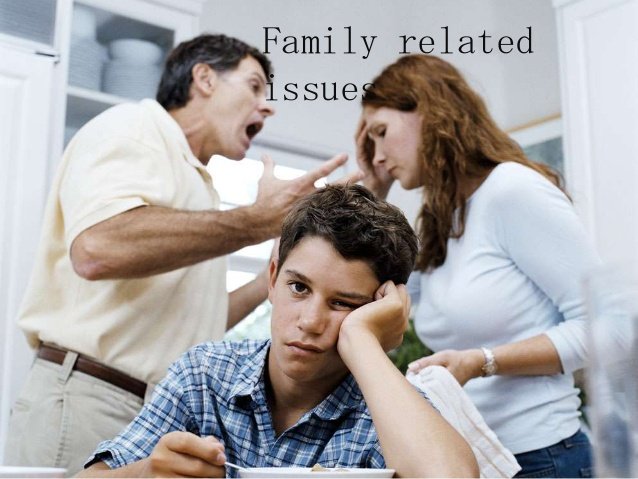Juveniles are constantly exposed to different risk factors on a daily basis. Such risk factors are usually affiliated with the environment they live in, peer influence, choice of mentor, and other circumstantial factors. Juveniles often find it hard to make the right decisions in life, due to a very limited level of experience and lack of appropriate guidance. However, the cognitive aspects such as personal behavior/character may be the cause of juvenile delinquency for some adolescents. Sociologists and psychologist believe that the lack of appropriate guidance makes adolescents more susceptible to juvenile delinquency.

THE THREE CATEGORIES OF JUVENILE DELINQUENCY
All factors that act as juvenile delinquency facilitators are grouped under three different categories; community, individual, and social.
Individual Factors:
Researchers claim that perinatal and prenatal factors complications are mostly associated with future criminal behaviors or delinquencies in youth (Shader, 2003). Meaning that birth complications may lead to health problems, whereby inducing a negative influence on the individual development of concerned persons. However, some other research contradictions claim that pregnancy and delivery complication influences are only common with violent criminals. Non-violent offenders such as drug addicts a, petty thefts, and drug peddlers are not considered to be influenced by perinatal/prenatal factors (Shader, 2003).
Another major factor that is considered to be a reason behind juvenile delinquency is wrapped up in the mental, behavioral and psychological characteristics of a person. Scholars and researchers predicted that aggression is an early sign for identifying delinquency in children before they reach thirteen years of age (Shader, 2003). Others believe that lack of an interest towards education, low academic aspirations, which subsequently leads to poor academic performances are also signs of future delinquency. Therefore, children with such characteristics are at a higher risk of juvenile delinquency (Shader, 2003).
Social Factors:
Studies have proven that when adolescents foster communications and relationships with delinquency peer groups, they are likely prone to becoming delinquent themselves with time (Shader, 2003). Therefore peer influence plays a facilitative role in juvenile delinquency, especially when parental communication/interaction rarely occurs. Adolescent often seek indirect approval and self-importance in many ways, if guidance and parents fail to identify and address such situations then juvenile delinquency is inevitable if a child finds approval and self-importance among peers (Shader, 2003).
Community Factors
Although, there are on-going studies intended to figure how the community influence juvenile offenders in the society. It is already known that the environment in which children are raised also play an important role in their upbringing. The effect of school policies such as expulsion, grade retention, and suspension are also considered to be facilitators of juvenile delinquency by the National Research Council and the Institute of Medicine (Shader, 2003). Studies also show that some schools in English, with the most severe punishments, are the schools with the most incidents of student misbehaviors (Shader, 2003).
Protective Factors
According to (Child Welfare Information Gateway 2014), identifies protective factors to be conditions or attributes of families, communities, individuals and the society at large; which reduces delinquency risks, and promote healthy development and healthy well-being. In other words, these are efforts put together to help persons or families who are at the risk of juvenile delinquency. In an attempt to improve the well-being of families, communities, and child well-being, more emphasis have been made on protective factors (Child Welfare Information Gateway 2014). As a result, more protective factors approach have been developed to address juvenile delinquency. The following protective factors discussed below, are currently in use:

- The Center for the Study of Social Policy (CSSP), developed youth thrive and strengthening families. This preventive factors approach was developed to address the issues surrounding adolescent, children, and youths who depend on social welfare services. Its aim, is to involve both parent and social workers in the continuous development and well-being of-of children and adolescents in order to reduce the risks of juvenile delinquency. It is also aimed at reducing the impact of bad experiences. (Child Welfare Information Gateway 2014) Under Youth thrive there are several the developed protective factors includes, tangible support when in need, creating social connections, socio-emotional and cognitive competency, and youth resilience. Under strengthening family, the same factors repeat themselves as parental responsibilities.
- Childhood essentials: was developed by the Center for Disease Control and Prevention (CDC), in an attempt to address child maltreatment and prevention of injury sustenance in children. This approach includes the safety, nurturing and stability of a child's physical emotional and mental well-being (Child Welfare Information Gateway 2014).
In conclusion, many more government organizations continue to work on different laws and policies to ensure the reduction of Child delinquency risks. The combination of efforts, from parents, community, and the society at large will continually reduce the risks of juvenile delinquency.
References
Child Welfare Information Gateway. (2014). Protective Factors approach in child welfare, Washington, DC: U.S. Department of Health and Human Services. Retrieved from: https://www.childwelfare.gov/pubPDFs/protective_factors.pdf
Michael Shader, (2003), Description of Risk Factors, Risk Factors for Delinquency: An Overview; Retrieved from: https://www.ncjrs.gov/html/ojjdp/jjjournal_2003_2/page3.html
To support Juvenile Delinquency awareness please upvote and leave your comments below.
You may also share on other social networks for a broader awareness on Juvenile Delinquency
SOCIAL CHANGE BEGINS WITH EACH AND EVERY ONE OF US - make your contribution today.
Please feel free to follow me @simeonburke and indicate topics you will like me to research on your behalf.
.
confront your cheating spouse with evidence, I was able to spy on my cheating ex phone without finding out.....it really helped me during my divorce ...you can contact ([email protected]) call +15134385039 for spying and hacking social networks, school servers, icloud and much more,viber chats hack, Facebook messages and yahoo messenger,calls log and spy call recording, monitoring SMS text messages remotely,cell phone GPS location tracking, spy on Whatsapp Messages,his services are cheap.. and please tell him i referred you to him he is a man with a heart of GOLD.